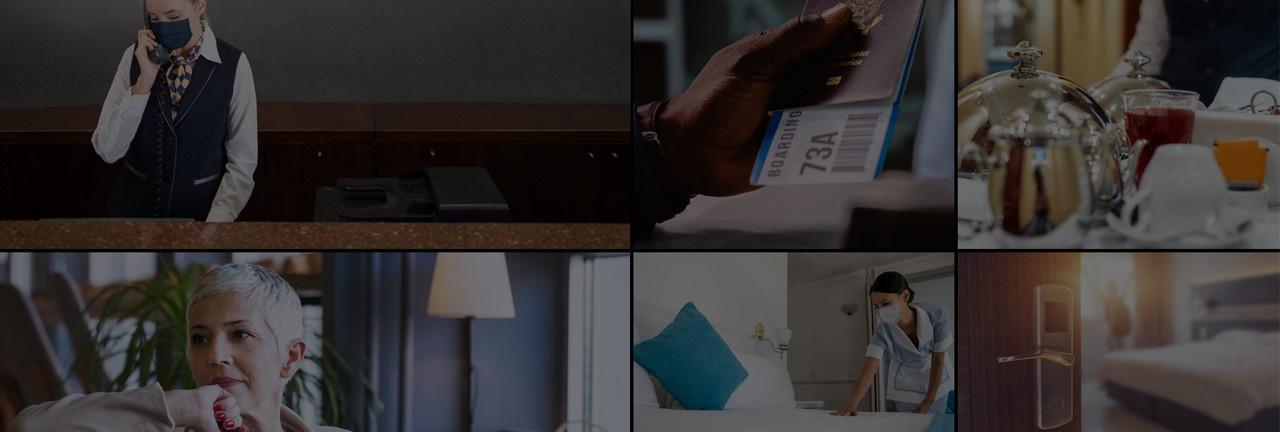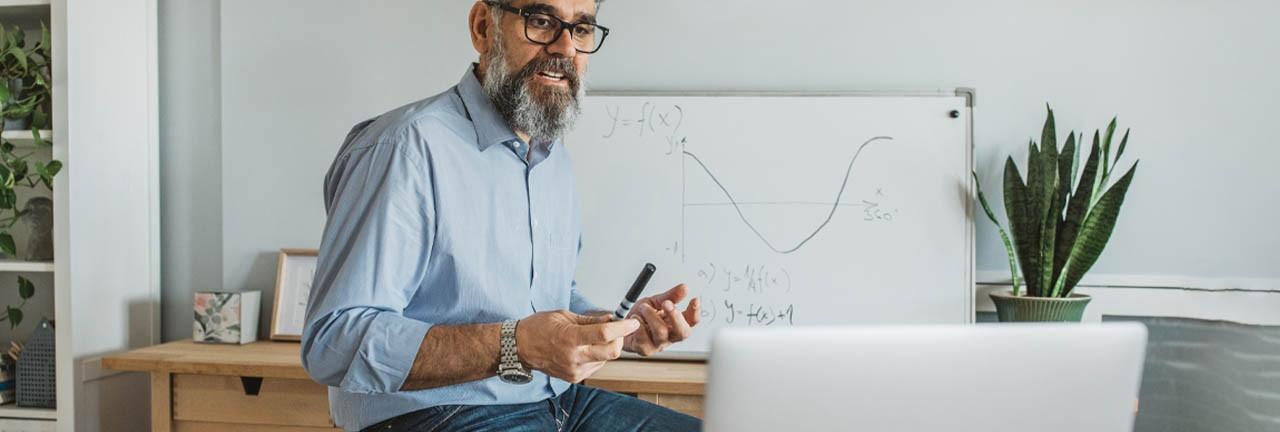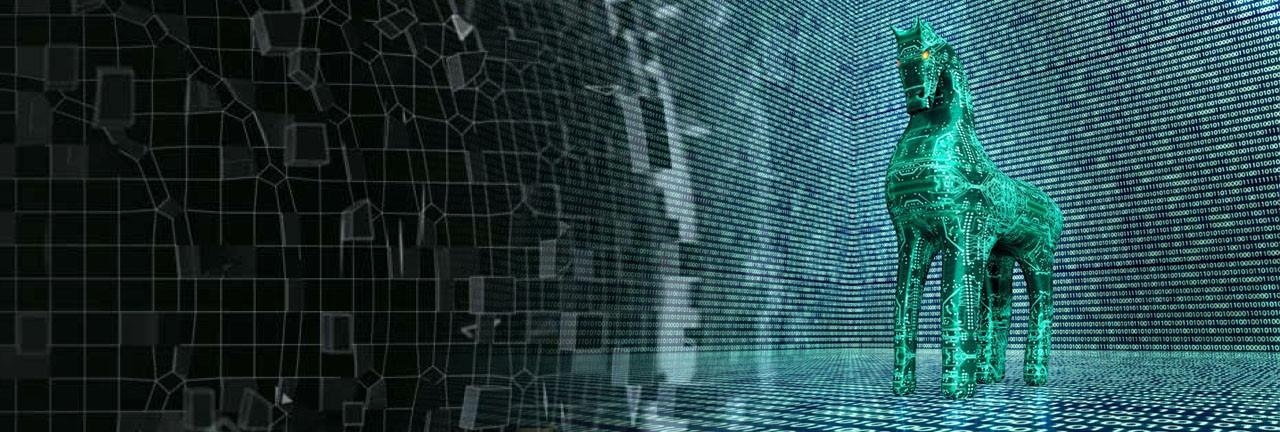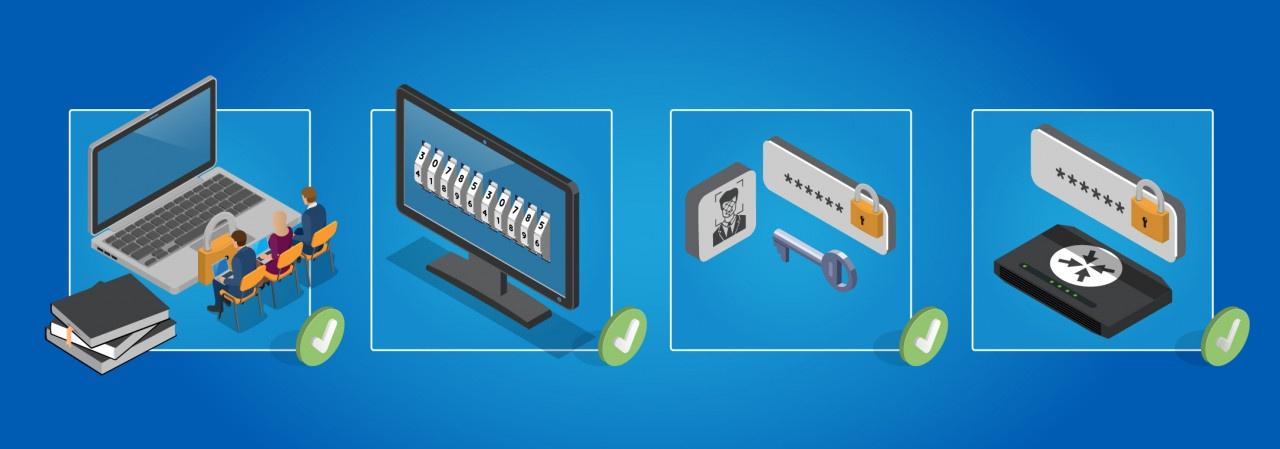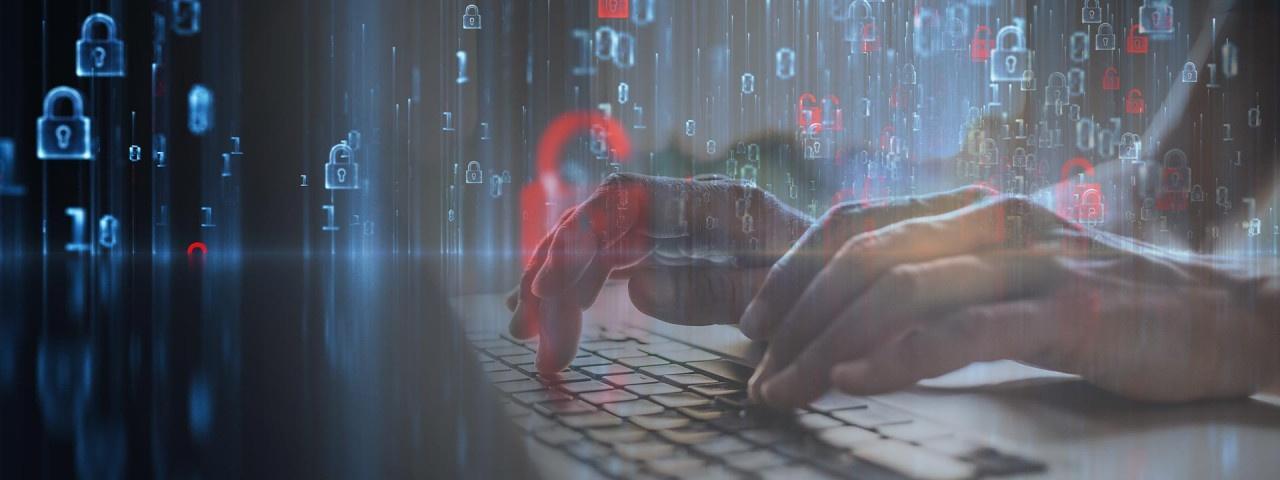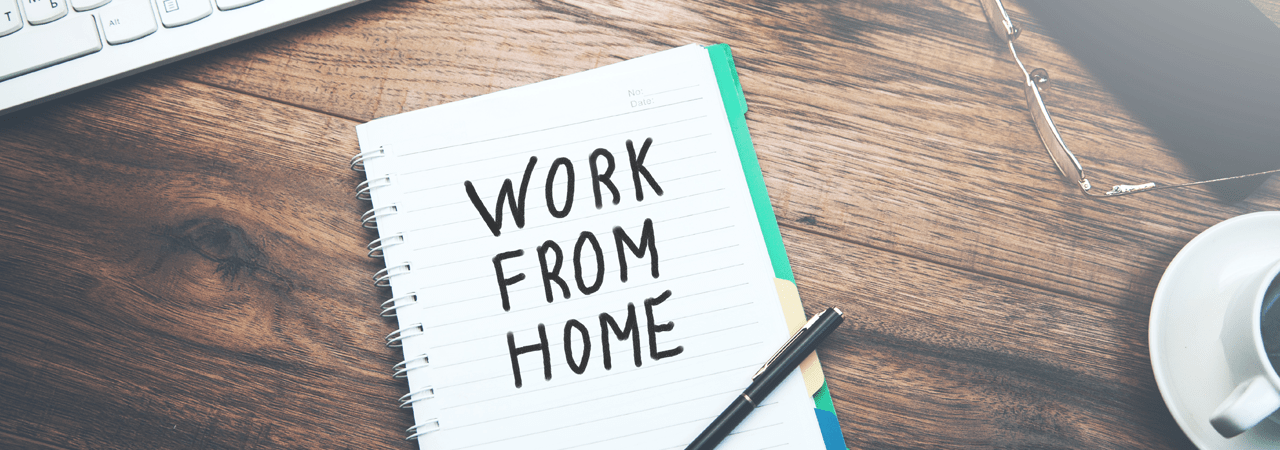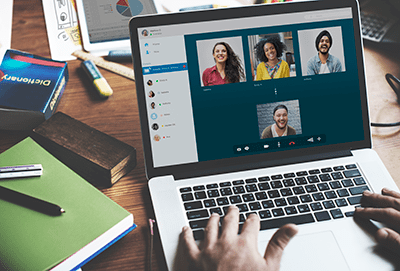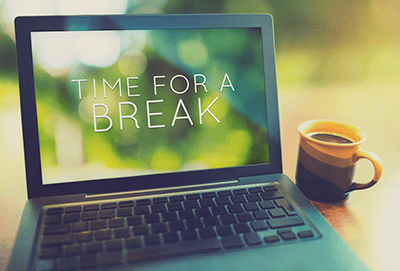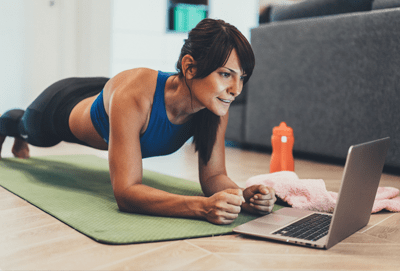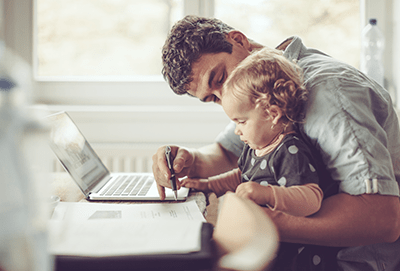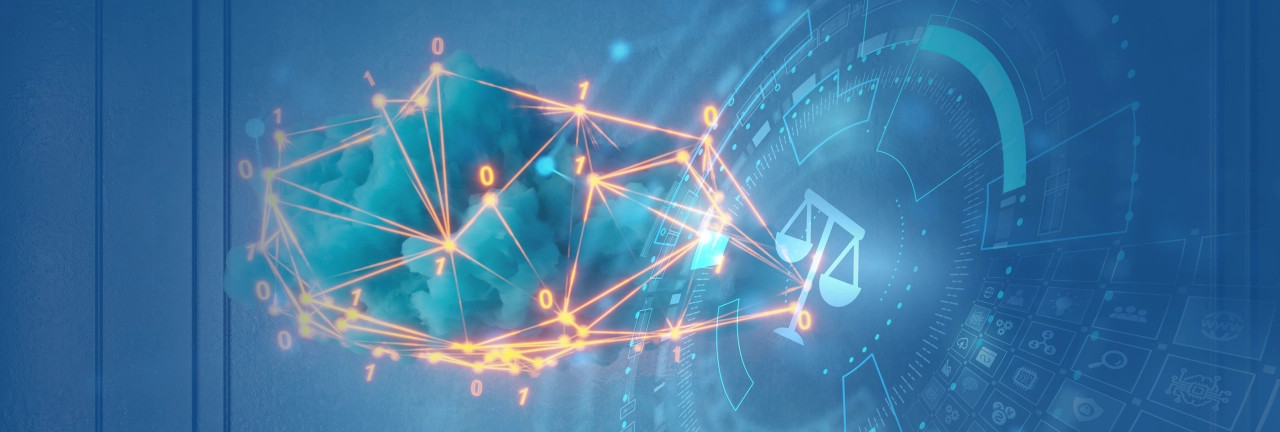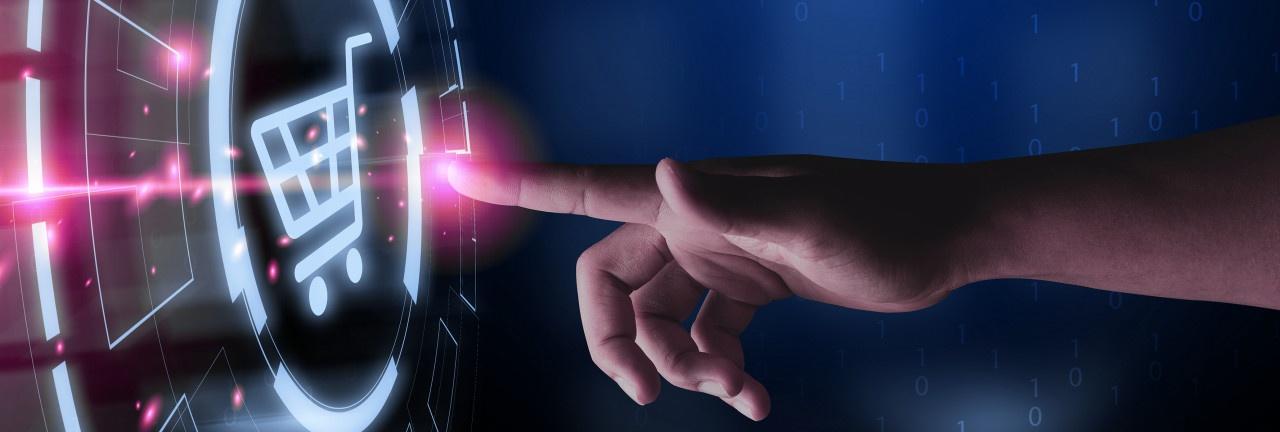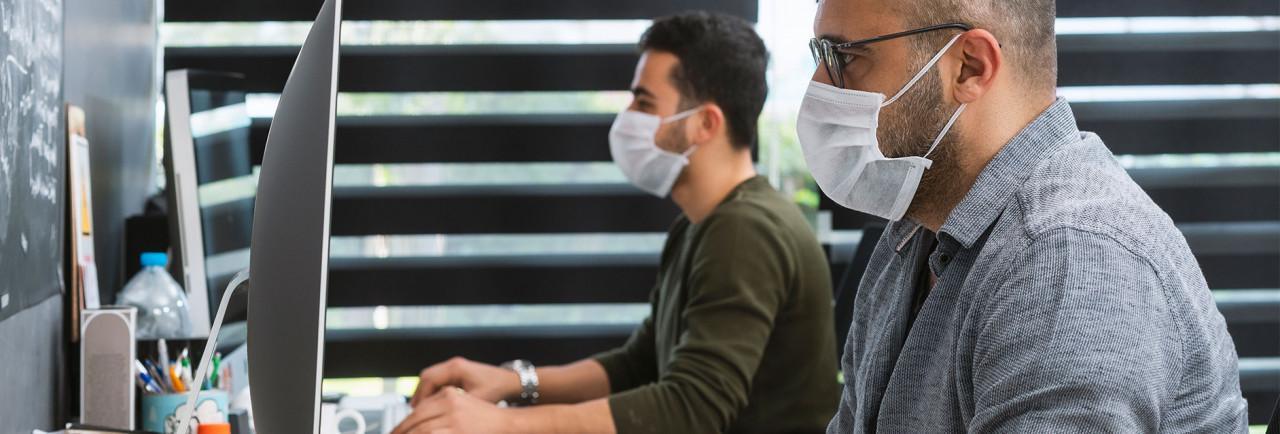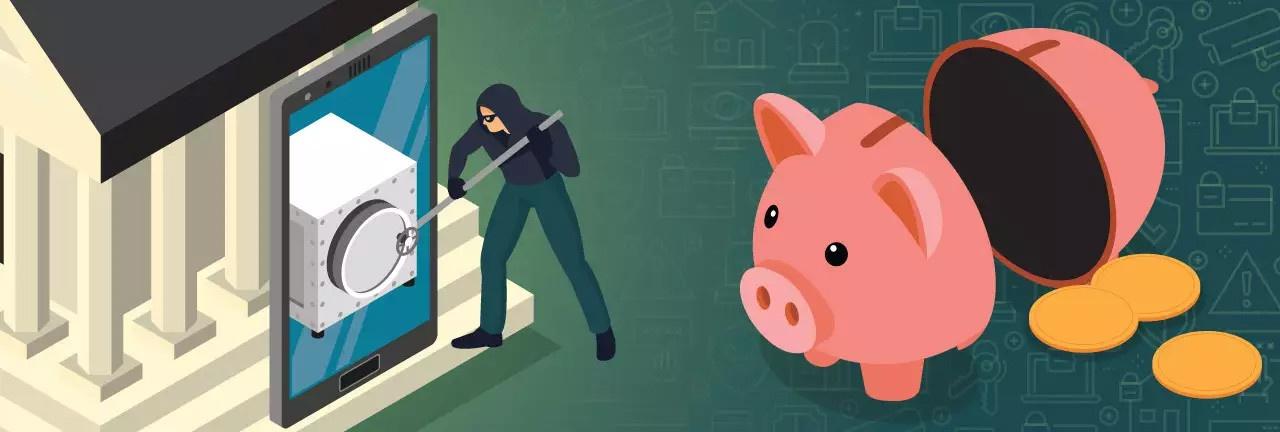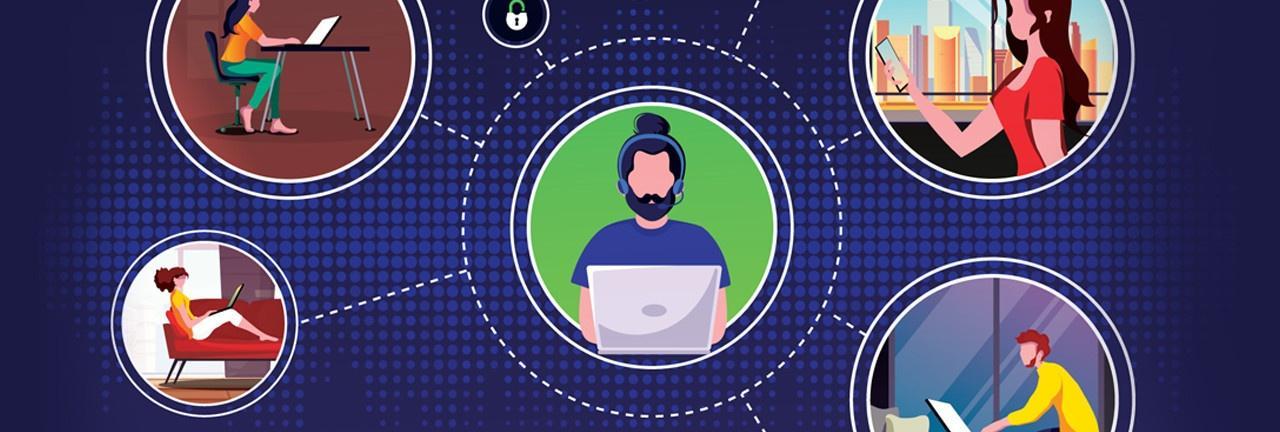Technology in the Hospitality Industry - Maintaining the Human Touch in the Age of Social Distancing
2020 has proven a challenging time for the global hospitality sector. As with virtually every industry impacted by COVID-19, the sector has been forced to completely re-evaluate the way it delivers its services, in order to comply with government regulations and - most importantly - guarantee the continued safety of both guests and staff.
We see over and over again how COVID-19 is transforming the way we work and connect with each other. Employees across virtually every industry are now working effectively from home, even if such an arrangement would have been unthinkable at the start of this year. It's been extremely heartening to see the range of innovations that have been embraced in response to the crisis, but it's important not to forget the foundations of your IT infrastructure as you explore these solutions. For example, consider how you are backing up and storing the lifeblood of your organisation: your data.
Our lives are more interconnected than ever, with everything from televisions to fridges, kettles, cars and even doors and windows now able to be linked together over the internet. Having long since moved on from being just an intriguing concept, the Internet of Things (IoT) is very much here to stay, with devices like Bluetooth headphones and the Amazon Alexa now omnipresent in many people's lives. But while these 'smart' devices are often convenient and fun, they do present a number of concerns regarding security.
Cloud adoption has been rising year by year for some time now, with Gartner predicting this trend to accelerate beyond 2020. It has long moved on from its earliest days, where it was largely regarded as an intriguing concept but unsuitable for enterprise-level applications. Now, with a wide range of options available - including Public, Private and Hybrid solutions - it has become a highly attractive prospect for organisations at all levels, especially against the backdrop of COVID-19 and the resulting advancement of remote working. While these trends are very much the latest stage in a long process of transformation, the pandemic has undoubtedly been the catalyst behind much recent Cloud adoption, as organisations accelerate their journeys towards a distributed workforce.
So, where does that leave us in terms of the biggest question: "Is Cloud right for my organisation?"
Throughout the past few months, we have seen organisations' internal teams forced to adapt their processes, infrastructure and strategies in ways that would previously have been inconceivable. Key to the success of this process has been the support of external service providers, who have complemented companies' internal expertise and freed IT teams to focus their attention where it is most needed. As it becomes clear that the distributed workforce is here to stay, such partnerships are going to be more important than ever moving forward.
Now more than ever, digital security is a team effort, with staff at all levels of an organisation having an active part to play in keeping critical business data safe. With the outbreak of COVID-19, and an unprecedented volume of staff working from home, robust security policies and systems are no longer enough - each and every member of staff must consider security as a fundamental part of their developing remote working routines.
But what can each of us personally do to ensure our organisations maintain their usual standards of security for the duration of this crisis, without letting such measures detract from our day-to-day work? Here are a few starting points…
Be prepared
If you're new to remote working, don't go in blind. Take the time to re-familiarise yourself with your company's security policies (particularly any new ones for home workers) and be sure to attend any training sessions that are on offer (as many organisations are rolling out remote training sessions for home workers, there are no excuses!). This will make the transition far smoother and allow you to stay focused on your work.
Secure your router
At Exponential-e, we always say that 'your Cloud is only as good as your network'. In the same way, your remote working solution is only as good as your router. As above, make sure its password is secure (especially if you've never changed its pre-set password!) and take any recommended security measures, both from your network provider and your IT team.
Check your passwords
This is a familiar refrain in the world of data security, but it always bears repeating. Familiarise yourself with current best practice regarding password creation (there are plenty of useful resources available online for this) and avoid reusing passwords. While memorising multiple passwords for each platform you use for work is certainly inconvenient, there are many excellent password manager tools available. Ask your IT team which one they would recommend, as your company may already require employees to use a specific one.
Enable updates
We all know how irritating requests to install updates on our personal devices can be, but in our current climate, it's more important than ever. More than just keeping your own devices secure, a single instance of malware could bring down your entire company network, so don't take any chances. Ensure you install all recommended updates, or – better yet – enable automatic updates. This will ensure your devices are always protected against the latest security threats.
Ask!
As we've already mentioned several times in this post, if you are unsure about anything when it comes to data security, don't guess… ask the right person! In particular, your IT team will be more than happy to advise you about security best practice when home working, or alternatively, consider Exponential-e's Cyber Security Advisory service, which was created to provide a 'one stop shop' for any security-related concerns you may have.
In the meantime, download our Working from Home Checklist, which breaks down all the key elements of secure remote working.
Working from home can at times be compared to Marmite - you either love it or hate it. You have people that regularly work from home and find themselves far more efficient and productive doing so, and then you have people that are generally office-based and fear the loss of the structure of the day and the social interaction.
With the majority of office workers now being asked to work from home, we've spoken to some of our regular home workers to get their 10 top tips for working from home, and how to get the most out of it and still feel connected to the wider team.
1. Do have a good working environment
Sitting up in bed or on the sofa sounds nice, but your back won't thank you as the day goes on. You should try to create a suitable working environment where you can sit up properly and have your laptop at the correct working height. Whether it's sat at the kitchen table or in your study, try and create an area clear of clutter. Why not try re-arranging some of your house plants to make your 'office' more inviting?
3. Do use video, it's good for all parties
Much of communication is non-verbal. Seeing your colleagues, clients or suppliers on video encourages interaction and engagement. But don't forget, everybody else can see you – make sure you're dressed appropriately and you've not just got out of the shower!
4. Do remember you can blur your background when on video calls
Using Microsoft Teams? You can blur your background on video calls, meaning that the pile of your kids' toys in the corner won't be visible. Handy right!? If you're using Zoom, there is a great feature that allows you to create a 'virtual background' – video call while on the moon, anyone?
6. Do schedule in 'virtual coffee breaks'
Why not schedule 20 minutes in the morning and afternoon to have a short social period with your team? You can all jump on a video call while you recharge your batteries with caffeine and talk about anything but work. Being able to keep some of the social side has a lot of benefits for all involved.
8. Do have some background noise if it helps you focus
If you're the sort of person that finds sitting in silence mind-numbingly boring, why not turn on the radio? Keep the volume low so you can still focus on your tasks and not get distracted. Just like in the office, if you find yourself drifting away from work due to the noise, make sure you refocus yourself.
9. Do have a routine
It's easy to slip into a 'lazy' way of working, potentially even be tempted to stay in your dressing gown all day, but it's important to still have a routine and set your mind up for the day. Try to keep the routine you had when going into the office - wake up, shower, have breakfast - you'll feel far more ready to tackle the day ahead.
And finally, the one that many people dread…
10. Don't worry about the kids/pets coming into the room
Cat jumped up on your keyboard? Your kid asking if they can have some crisps? We're all human and these things happen. Embrace them if they happen to you, and help others feel comfortable when it happens to them - everybody understands the situation that we find ourselves in. We'll all have stories to tell about 'those' moments in the coming weeks!
Now, most of these points will be stating the obvious for those of us that work from home on a regular basis. The challenges that we will all face in the coming weeks are some of the common challenges faced by regular home workers. Once this all dies down, and we are all able to return to the office environment, why not reach out to your colleagues that work from home to make sure they feel part of the team?
Although digital transformation amongst Legal firms has typically been comparatively slow compared to other sectors, the journey has picked up speed over the course of the last decade.
"The world will never be the same after Coronavirus…"
I kept hearing this phrase a few weeks ago and had no idea why people were saying it. Why would the world never be the same again? It didn't make any sense to me, surely once this is over it will all go back to the same way it was before, right? Wrong.
The global Aviation industry has been hit hard by the coronavirus pandemic. Around the world airport terminals are deserted due to travel bans and enforced lockdowns, fleets of planes are parked in their hundreds in hangars and employees have been laid off or furloughed.
The current global stay at home policy has fundamentally changed how we all work. Many around the world have become accustomed to the daily use of teleconferencing tools, instant messaging platforms and shared documents hosted in the Cloud.
The finance sector is required to have one of the most sophisticated cyber security postures in the world, with bureaus, banks, finance companies and insurers working closely with their technology partners to ensure sensitive financial data is managed, stored and transferred, with a stringent range of international security standards that must be adhered to at all times. However, cyber criminals have demonstrated repeatedly that they are constantly working to breach even the most sophisticated security ecosystems, devising new ways to exploit both technological vulnerabilities and human error.
Over the course of the past year, the contact centre has been changed forever, with social distancing requirements meaning that familiar methods of face-to-face contact are now unavailable. In light of these shifts, social media, video and email contact are now regularly utilised as the primary channels for customer queries – a trend that we have seen on the rise for some years now. Between March and November 2020, we saw a significant update in the use of online channels, with 54% of organisations reporting an increase in email contact, 52% reporting an increase in social media, and 65% reporting an increase in the use of web chat.
In July of 2019, Exponential-e hosted a roundtable at The Ritz London, bringing together 18 top UK architects to discuss topical issues across the sector and sharing views on the matters at hand. One of the topics raised was the newly launched Architects Declare manifesto and its 11-point plan for tackling climate change and biodiversity loss. From 16 founding signatories, word spread like wildfie and within weeks, hundreds of practices - large and small - signed up, signalling that our architects were ready commit to operating in a greener, more sustainable manner.
"Not-for-profit organisations have provided a trusted and valued source of independent advice for people throughout England for many years. They are a vital part of our national support infrastructure and somewhere to turn to in times of crisis."
Nick Hurd, MP

